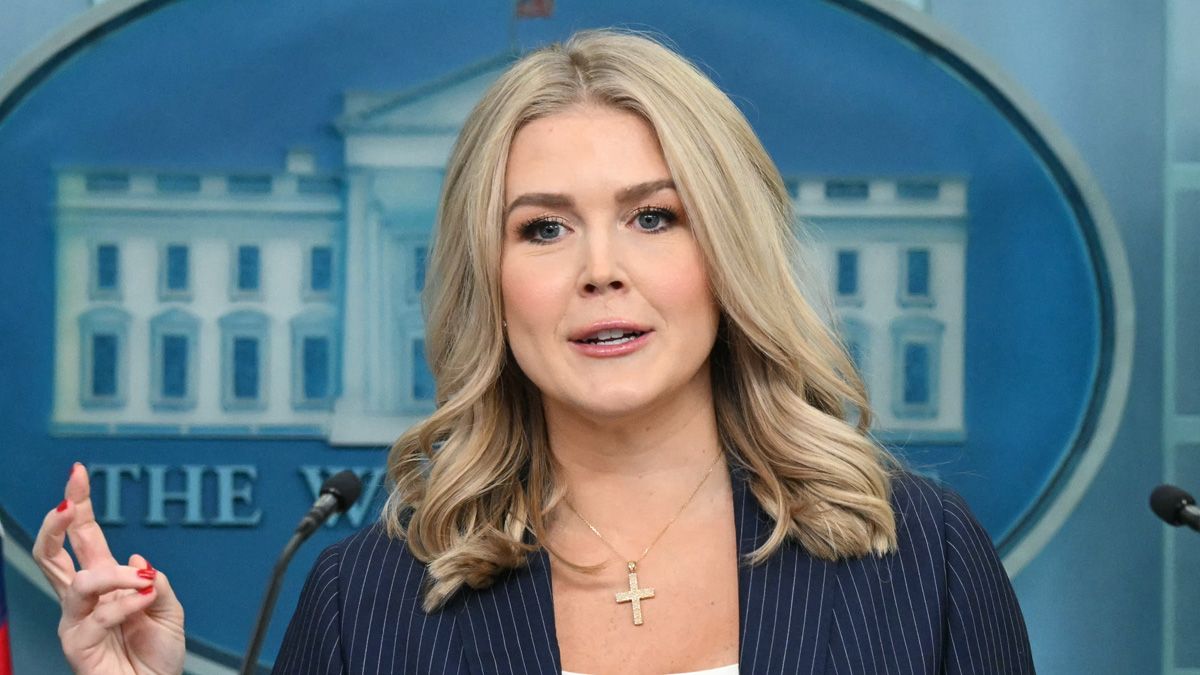Republicans Express Concerns Over Trump's Executive Actions and Funding Cuts

WASHINGTON -- Republicans on Capitol Hill are praising President Donald Trump's executive actions and attempts to cut federal spending, portraying it as the disruption that Americans voted for last fall.
However, that support is wavering as the potential adverse impacts hit home for their constituents.
From cuts to health and agriculture funding to fears of new tariffs affecting local industries and consumers, Republican lawmakers are beginning to push back against certain elements of Trump's plans. They are doing so cautiously, recognizing that voters want to change the status quo in Washington while trying to avoid Trump's wrath.
Sen. Katie Britt, R-Ala., recently voiced her concerns regarding the administration's funding reductions under the National Institutes of Health (NIH). The University of Alabama, a major recipient of these funds, has become the state's largest employer.
Britt stated, "A smart, targeted approach is needed in order to not hinder life-saving, groundbreaking research at high-achieving institutions like those in Alabama."
Similarly, Sen. Susan Collins, R-Maine, criticized the cap on indirect costs under NIH grants, labeling it as "poorly conceived" and asserting that it would force "arbitrary cuts in funding for vital research at our Maine institutions."
Sen. Bill Cassidy, R-La., cautioned that universities without "big endowments" would suffer the most from the NIH cuts, making it hard for them to conduct research.
"It'll be very difficult for them to conduct this research. And so, of course, I want people in Louisiana to benefit from research dollars, and for it not all go to Massachusetts and California," Cassidy mentioned. "So I am actively conversing with my constituents and looking into this issue."
While warnings have arisen concerning NIH funding reductions, they are just one example of Republicans growing uneasy with some blunt measures from Trump's administration that may lead to negative results for their states.
This trend suggests an upcoming challenge for Trump, as GOP lawmakers are crucial to his defense against controversial orders. Should he push them too far, they might leverage their legislative powers to halt his plans, potentially allying with Democrats.
Protecting local interests is a deep-rooted tradition on Capitol Hill, but it holds heightened importance for Republicans in red states that rely on federal financial support.
Analysis by the Rockefeller Institute of Government for the fiscal 2024 budget shows that of the top 20 states receiving more federal funding than they contribute in taxes, 13 are solidly red states that voted for Trump in the last three elections. In contrast, the top five states (and nine of the top 10) that pay more to the Treasury than they receive have gone Democratic in the last three presidential elections.
Additionally, Republicans in rural areas are focused on safeguarding farmers who depend on the federal government as a crucial customer. The U.S. Agency for International Development, which Trump and his adviser Elon Musk have targeted for potential cuts, oversees the "Food for Peace" program, where the government purchases and sends American crops to alleviate hunger globally.
A group of Republicans from rural districts, including House Agriculture Committee Chair Glenn Thompson, R-Pa., has introduced legislation to save the Food for Peace program by transitioning it to the Department of Agriculture.
Rep. Tracey Mann, R-Kan., stated, "For 70 years, Kansas and American farmers have played an active role in sending their commodities to feed malnourished and starving populations around the world. This free gift from the American people is more than food. It's diplomacy that nourishes the most vulnerable communities."
Mann is collaborating on the bill with Thompson and other representatives from rural states.
However, Trump's tariffs have also raised concerns among some of his staunch allies on Capitol Hill, such as Sen. Chuck Grassley, R-Iowa. Grassley reacted when Trump threatened to impose tariffs on imports from Canada.
Grassley highlighted the issue of high fertilizer prices, requesting an exemption to protect Iowa farmers from the tariffs.
"I plead with President Trump to exempt potash from the tariff because family farmers get most of our potash from Canada," he stated on X.
"I'm a free and fair trader," Grassley added. "The president was elected on a platform of trying tariffs. If they work, I'll applaud him. If they don't, I'll let you know."
Kentucky's Republican senators, Mitch McConnell and Rand Paul, have also expressed their discontent with Trump's tariffs, emphasizing that the cost increase would affect American citizens, including Kentuckians.
In a recent opinion piece for the Louisville Courier-Journal, McConnell warned that imposing tariffs could have adverse effects on "our state's 75,000 family farms that sell their crops globally, or the hardworking Kentuckians who craft 95% of the world's bourbon, or our auto industry."
He noted, "Local storeowners in Kentucky are already facing rising supplier prices. One estimate suggests the president's tariffs could cost the average Kentuckian up to $1,200 each year."
McConnell further remarked, "This isn't just about domestic price increases. The last Trump administration saw retaliatory tariffs initiate a broader trade war affecting numerous American industries, from agriculture to manufacturing."
Paul, who often disagrees with McConnell, found common ground on this issue, stating, "We won the last election by critiquing Democrats' policies that led to high prices. Advocates of tariffs will have to clarify the ongoing high costs."
Tension may be brewing between Trump and Republicans in Congress, as the president has frozen grants under two laws implemented by President Joe Biden, for infrastructure and clean energy incentives, both crucial for red states.
Sen. Patty Murray, D-Wash., vice chair of the Appropriations Committee, advised Trump to seek congressional approval for his budget cuts.
"Endangering farmers, halting infrastructure projects, slashing cancer research, and eliminating high-paying clean energy jobs isn't just unpopular; it devastates working families everywhere," Murray stressed. "Trump's funding freeze and proposed cuts must be reversed to protect communities across the political spectrum."
Murray concluded, "If Trump and Elon intend to cut funding for essential programs, they must present a proposal and secure congressional backing."




















